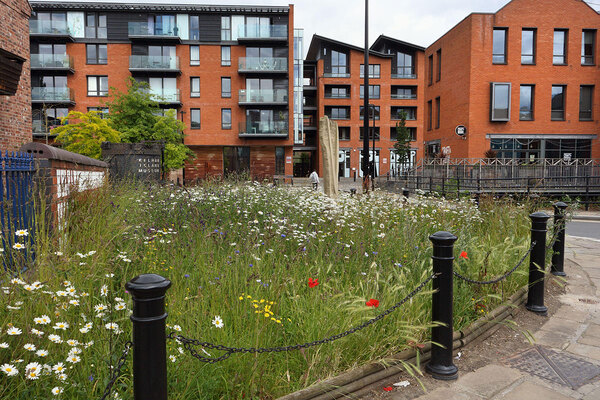You are viewing 1 of your 1 free articles
‘Higher than expected’: three-quarters of developers claim exemptions from biodiversity rules
A “higher-than-expected” three-quarters of developers are claiming exemptions from biodiversity net gain (BNG) rules, a report has found.

Research by TerraQuest, whose Planning Portal monitors planning applications in England, found that 75% of applicants claimed an exemption from BNG on their sites since the policy came into effect last year.
The figure excludes householders, who are automatically exempt from BNG if they submit a planning application for their own home.
BNG, which came into force in February 2024 for large developments and April 2024 for small sites, requires all developments to achieve a 10% improvement in biodiversity on their sites to be granted planning permission.
If developers cannot fully meet the requirement on site, they can meet BNG off site, improving their own land elsewhere or buying biodiversity units on the market. Biodiversity credits can be bought from the government as a last resort.
Dr Nick White, principal adviser for net gain at Natural England, said: “I think overall the policy is working, but inevitably there will be opportunities to fine-tune the legislation both now and in the future.”
There are eight exceptions from BNG. According to the report, the most popular is known as ‘de minimis’, which means the development does not impact on a priority habitat and impacts on less than 25 sq m of on-site habitat.
Inside Housing understands that de minimis was designed to apply to very small developments, such as an accessibility ramp on existing hardstanding.
De minimis is also commonly applied to tarmacked sites that have negligible biodiversity to begin with – for example, a car park. The de minimis rule has been used for around 75% of total BNG exemptions since July 2024.
Other exemptions include self-build or custom developments, representing around 15% of exemptions. Retrospective planning applications are also not required to prove BNG.
Angus Walker, partner at law firm Broadfield UK, said: “In my view, the only exemption that should be removed is for retrospective permissions where habitat harm occurred after BNG came into force.
“Having said that, the exemptions should be properly applied and it appears from this data that they may not be being applied consistently.”
The number of applications for self and custom-build units has also increased, with an average of 89 more self-build unit applications per month up to September 2024 compared with 2022 and 2023.
The report suggested that the removal of the small site exemption in April 2024 may have contributed to an increased use of other exemptions.
Geoff Keal, chief executive of TerraQuest, said the report showed a “higher-than-expected use of exemptions”.
He said: “TerraQuest and Planning Portal are committed to supporting sustainability in the built environment and believe in the potential of bold legislative initiatives like BNG.
“However, it is essential that such measures are implemented correctly and practically to achieve the positive outcomes that motivated them.”
Luke Bigwood, chief marketing officer at BNG habitat firm Environment Bank, said: “The exemptions at present mean the full potential of BNG cannot be reached.
“We understand that the regulations are a lot for organisations to comprehend – even large commercial developers that have their own ecologists or consultants, let alone smaller and medium-sized developers.
“But the exemptions were not designed as an alternative way out of the scheme for those applicants who are struggling to make sense of them.”
Sign up for our asset management newsletter
Already have an account? Click here to manage your newsletters











